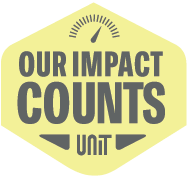Cross-Sector Collaboration for Sustainable Seafood
By Brad Zarnett, Guest Blogger | Founder & President TSSS | March 18, 2016
This post from Brad Zarnett is part of our Partner Perspectives blog series. In this series, we’ll feature diverse voices answering question “How can for-benefit business collaborate with NGOs and nonprofits, government and traditional companies to create change?” What are your thoughts on the topic? Share them with [email protected] and you could be our next guest blogger!
In November 2011, the Toronto Sustainability Speaker Series (TSSS) brought together three influencers in the sustainability space to speak about Revolutionizing an Industry – Engaging Shareholders, Suppliers and Consumers. When RoundPeg reached out and asked me to share my thoughts on how different stakeholders can collaborate to create positive change, I immediately thought back to the insights our speakers shared that day. Our panel featured:
- Paul Uys, VP Sustainable Seafood, Loblaw (a Canadian supermarket chain);
- Hadley Archer, VP Strategic Partnerships, World Wildlife Fund Canada (WWF); and
- Tom Janes, Director, Sustainability, Janes Family Foods (a frozen food producer).
Together, they told the story of how they worked to source and deliver sustainable seafood to Loblaw’s customers. The collaboration that occurred is a great example of how cross-sector cooperation in general can succeed in creating change.
Sign Up for Pegable Post to get ideas, advice and resources on activating your mission sent right to your inbox.
Big Company Shoots for Sustainably Sourced Fish
In 2009, Loblaw committed to source all seafood sold in its retail locations from sustainable sources by the end of 2013. Paul Uys explained that partnerships with stakeholders like WWF Canada and seafood product suppliers like Janes Family Foods were vital to achieving their goal and honoring their commitment.
Loblaw knew that its initiative could not succeed without internal employee engagement, cooperation and compliance from suppliers, and education and communication with consumers. Uys noted that when the decision is made to embrace sustainability, a larger company may face greater challenges in shaping a new corporate vision as influential skeptics within the company must be convinced of the business case.
Loblaw worked with WWF Canada to ensure its suppliers would comply with the guidelines of the Marine Stewardship Council (MSC), an independent international nonprofit that certifies responsibly sourced seafood.
WWF Canada works with fisheries to help them adopt more sustainable practices through a Fishery Improvement Project or Fishery Conservation Project, sometimes helping them become MSC certified. WWF then partners with retailers, processors and seafood buyers to help them source certified fish. Essentially, they help to strengthen both supply and demand for sustainable seafood to hasten the widespread adoption of sustainable fishing practices.
WWF’s Archer explained that implementing sustainable fishing practices has a number of positive outcomes:
- Consumers can trace certified fish through the entire supply chain,
- Protecting fish populations protects the livelihoods of the many people involved in bringing fish from boat to plate, and
- Fishing sustainably protects vital marine ecosystems.
Small Company Goes Sustainable, Brings Along Reluctant Supplier
Janes Family Foods (Janes) is a family owned and operated Canadian company that supplies frozen foods like fish fillets to various retailers, including Loblaw. In February of 2011, Janes became the first branded seafood company in North America to have 100% of its retail seafood products certified by the MSC. Janes guarantees the ethical catch and production of its frozen retail seafood products by quality control, traceability and certification.
Tom Janes, Director or Sustainability at Janes, explained that being family-owned helped with the transition: leadership commitment and corporate commitment are essentially synonymous when making business decisions like choosing to source its catch only from sustainable fishing practices.
Still, the process wasn’t without its challenges. In one instance, one of Janes’ long established seafood suppliers either could not, or would not, meet their standards for sustainable practices. Janes made the difficult decision to drop the supplier. This left the supplier without a buyer for their product and Janes scrambling to meet their supply needs. When the supplier learned more about sustainable practices and chose to meet the requirements, it was able to re-establish itself as a preferred supplier for Janes. This is but one example of how the sustainability journey is a bumpy road, but one worth traveling.
Sign Up for Pegable Post to get ideas, advice and resources on activating your mission sent right to your inbox.
Leadership Skills for Stakeholder Engagement
Partnerships bring incredible opportunities to the table, but they still take serious work (Click To Tweet!). Paul Uys offered the following tips for those working to actively engage stakeholders across sectors:
Think from a systematic perspective that considers big picture and overall impact.
Don’t be afraid to make a decision that might initially appear to go against traditional business measures. Maintaining stakeholder relationships is vital to long term business sustainability.
There are three key ingredients for stakeholder engagement: passion, individual responsibility and courage.
Key Message – Patience and Collaboration
Hadley Archer cited research that shows that 91% of Canadians feel it is important that fish and other seafood on sale in Canada come from sustainable stocks. Still, it takes education about purchasing options and commitment from retailers like Loblaw and producers like Janes to make those good in-store purchasing decisions possible.
Partnerships between NGOs, governments, suppliers, customers and even competitors are vital for the success of any large-scale sustainability initiative. The Loblaw Sustainable Seafood story shared by our panel serves as an excellent example of how organizations achieve greater feats in sustainability by engaging and collaborating with stakeholders.



